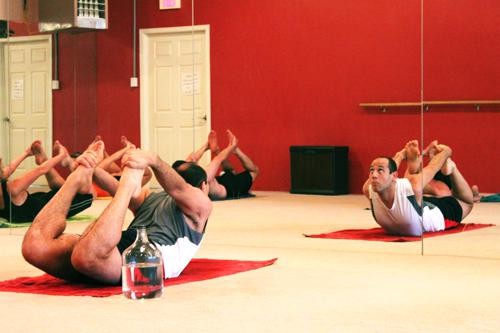For the sixth consecutive year the UA’s Life & Work Connections has been selected to receive the Seal of Distinction, a national award recognizing their dedication for unifying and integrating work and lifestyles for UA employees.
The national award is given to organizations that provide “a distinct mutually beneficial experience to their workforces as determined by the overall strength of their total rewards portfolio and success in creating positive work environments” according to WorldatWork, a nonprofit human resources association.
“When we take care of the people who work with us, they take care of the university and the people inside the university,” Allison Vaillancourt, vice president of business affairs and human resources, said. “We want our faculty and staff to be fully invested and for them to do that they need to feel like we are supporting them.”
UA has won the award every year since the creation of the award in 2012.
A total of 160 organizations from across the nation were chosen this year.
Caryn Jung, senior coordinator for employee, student, child, elder care and work life programs said the university is unique in that they offer a wide variety of resources to help employees’ work-life options.
RELATED: Cooking on Campus brings healthy eats

Services include health and wellness programs, counseling services, flexible work arrangements and child and elder care resources.
According to their website, the UA’s award winning services include: a sick child and emergency care program, employee wellness and health promotion, stress management, mindfulness and relationship-building resources, and walks with campus leaders.
Jung said the services help faculty, staff, and students better manage and balance their work and life commitments.
Emily Walker, a pre-physiology freshman said it’s important to earn enough income and be able to use services and have options like the UA offers.
“You don’t always want to be focused on work and not have time for your family outside of work,” Walker said.
According to the Sloan Work and Family Research Network, people between the ages of 30 and 49 are most likely to work long hours.
“We believe it’s important to offer these services to faculty, staff and students in that it provides support for recruitment and engagement and it allows individuals to customize services that can best meet their individual and family needs, and that supports their productivity,” Jung said.
In addition to the array of services offered to UA employees already, an interactive version of the Family Resource Map was made through a collaboration between Life & Work Connections, the College of Agriculture and Life Sciences and the Facilities Management.
RELATED: Are finals stressing you out? UA health experts are here to give advice

The map is a mobile-friendly appliance which allows employees, students and visitors to find things like lactation spaces, diaper-changing stations and family restrooms.
“More diverse types of people will want to be here because they know it’s a good place to work,” Vaillancourt said. “Whenever you’re known as one of the best employers in the community you get the best talent, and that’s what we’re looking for.”
Vaillancourt said she believes that the strong support for their employees makes the university stronger and more welcoming.
“We always need to think about what attracts people to work at the university—knowing that we’ve got resources to take care of elder care issues, child care issues, paid parental leave and robust professional development programs sends a signal that we get to do good work here, but we’re also getting some valuable benefits as a result,” Vaillancourt said. “If we didn’t have these kinds of programs it would be harder for us to attract and retain the kind of people we need in order to propel the university forward.”
Follow Angela Martinez on Twitter.









